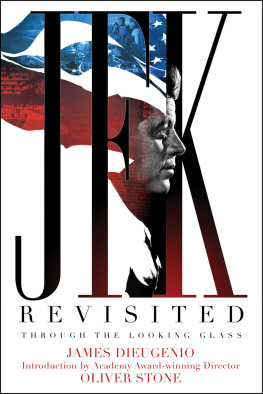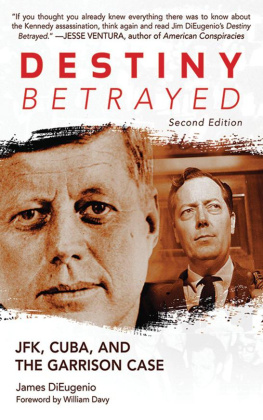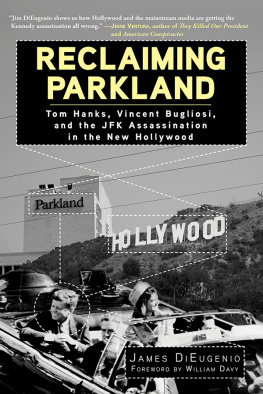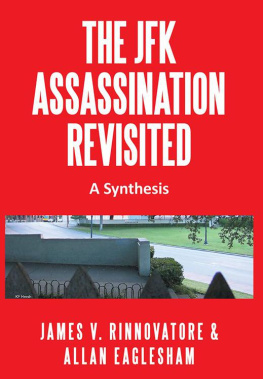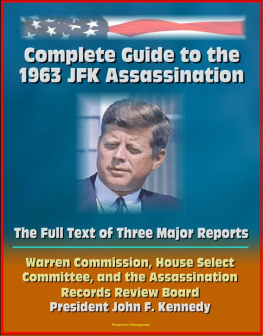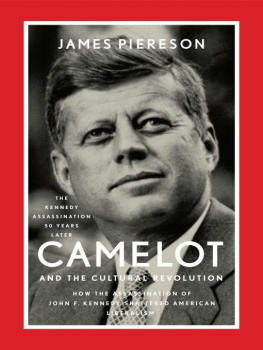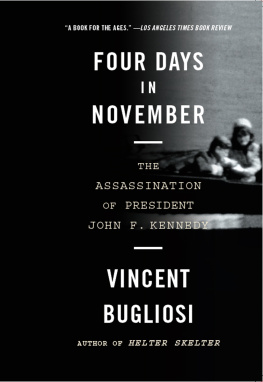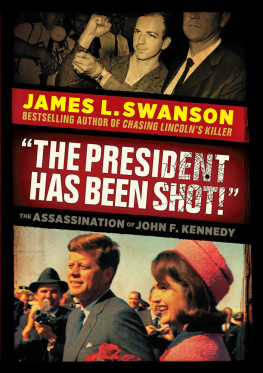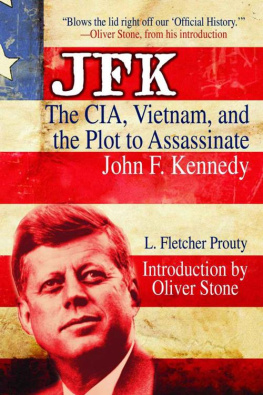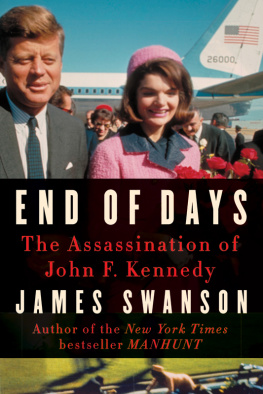James DiEugenio - JFK Revisited: Through the Looking Glass
Here you can read online James DiEugenio - JFK Revisited: Through the Looking Glass full text of the book (entire story) in english for free. Download pdf and epub, get meaning, cover and reviews about this ebook. City: New York, year: 2022, publisher: Skyhorse, genre: Detective and thriller. Description of the work, (preface) as well as reviews are available. Best literature library LitArk.com created for fans of good reading and offers a wide selection of genres:
Romance novel
Science fiction
Adventure
Detective
Science
History
Home and family
Prose
Art
Politics
Computer
Non-fiction
Religion
Business
Children
Humor
Choose a favorite category and find really read worthwhile books. Enjoy immersion in the world of imagination, feel the emotions of the characters or learn something new for yourself, make an fascinating discovery.
- Book:JFK Revisited: Through the Looking Glass
- Author:
- Publisher:Skyhorse
- Genre:
- Year:2022
- City:New York
- Rating:3 / 5
- Favourites:Add to favourites
- Your mark:
JFK Revisited: Through the Looking Glass: summary, description and annotation
We offer to read an annotation, description, summary or preface (depends on what the author of the book "JFK Revisited: Through the Looking Glass" wrote himself). If you haven't found the necessary information about the book — write in the comments, we will try to find it.
JFK Revisited: Through the Looking Glass contains the two working original screenplays for Oliver Stones JFK Revisited; both the two-hour version, Through the Looking Glass, and the four-hour version, Destiny Betrayed. These films are the first documentaries to feature the work of the Assassination Records Review Board.
The Assassination Records Review Board worked from 199498 releasing records that the government has classified in whole or in part on the assassination of President John F. Kennedy. They ended up releasing about two million pages or approximately sixty thousand documents. They also pursued an investigation into the autopsy and medical evidence in the JFK case. Although their releases and discoveries were quite important to the evidentiary record, they received very little exposure in the mainstream media. They also released documents relating to Kennedys foreign policy in both Cuba and Vietnam. In the former case, these were plans by the Pentagon to create a pretext to invade Cuba. In the latter, documents proved Kennedy was implementing a withdrawal plan from Vietnam.
This book is unprecedented. It contains a compendium of information originating from the widest range of authorities on the JFK case ever assembled. This includes luminaries from several fields: pathology, surgery, ballistics, criminal investigation, neurology, history, and journalism. Never before have people like forensic pathologist Cyril Wecht, criminalist Henry Lee, Professor James Galbraith, author David Talbot, journalist Jefferson Morley, intelligence analyst John Newman, Professor Robert Rakove, and more appeared in one book; never have this many illustrious authorities been interviewed about their views on the policies and the assassination of President John F. Kennedy. The book also includes important witness interviews with Dr. Donald Miller about his colleague Malcolm Perry, Jim Gochenaur of the Church Committee, and Edwin McGehee of both the House Select Committee on Assassinations and the Jim Garrison investigation.
The combination of this newly released information plus expert interviews changed the database and calculus of the JFK case. The scripts are included in this book, which were the backbone for Oliver Stones films. It also includes important excerpts from the many interviews which did not make it into the final cuts of the films. JFK Revisited will challenge everything you thought you know about the JFK assassination.
James DiEugenio: author's other books
Who wrote JFK Revisited: Through the Looking Glass? Find out the surname, the name of the author of the book and a list of all author's works by series.

